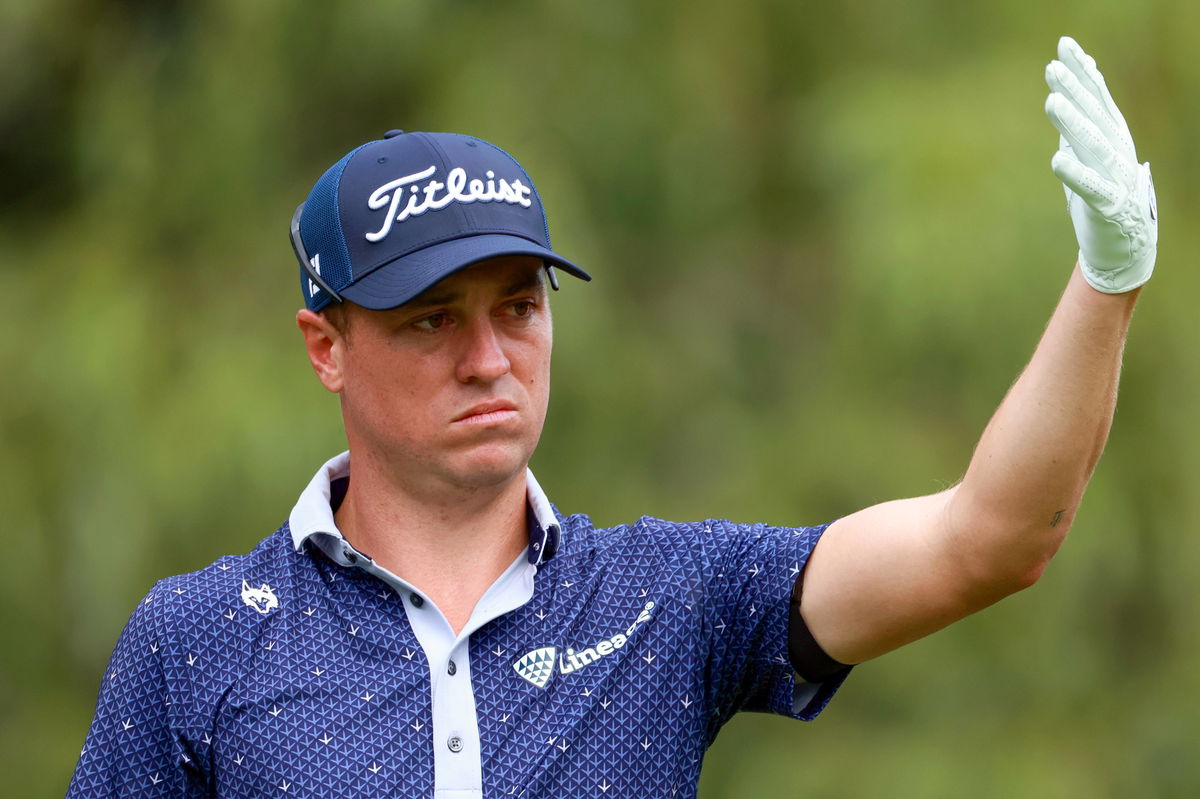

Justin Thomas has been one of the most vocal advocates for better player-media relationships on the PGA Tour. The two-time major champion recently encouraged his fellow professionals to be more cooperative with broadcasters and journalists. After ending his nearly three-year victory drought at the RBC Heritage earlier this year, he even suggested players should embrace media opportunities to help improve golf’s television product. However, when the PGA Tour’s official Instagram account recently posed a straightforward question, Thomas took a completely different approach.
Watch What’s Trending Now!
When asked who the best current TOUR player is without a major ahead of the upcoming Open Championship at Royal Portrush, he firmly refused to participate. “I am not answering that. It’s a trap, I am not answering it,” Thomas declared, immediately distancing himself from what seemed like an innocent peer assessment. His response stood in stark contrast to that of his colleagues, who were enthusiastic about the discussion.
Adam Scott confidently selected Patrick Cantlay, citing his consistent performance – a choice backed by Cantlay’s current 20th world ranking and four top-10 finishes this season. Xander Schauffele also picked Cantlay, recognizing the American’s elite iron play (10th on Tour in Strokes Gained: Approach). Collin Morikawa chose Viktor Hovland, noting their friendship and the Norwegian’s strong form, justified by Hovland’s 2025 Valspar Championship victory and 12th world ranking. Justin Rose deliberated before selecting Russell Henley, whose outstanding season includes an Arnold Palmer Invitational victory and seven top-10 finishes. Another player picked Tommy Fleetwood, whose remarkable consistency shows nine top-22 finishes in ten 2025 starts.
View this post on Instagram
Thomas’s refusal to engage reveals the complexity behind his media philosophy. While he advocates for player cooperation in principle, he recognizes situations where participation might have unintended consequences. His “trap” comment suggests he viewed this particular question as creating potential complications with fellow competitors, regardless of his general support for media relations.
Justin Thomas’s Complicated Relationship With Media Engagement
Thomas’s contradiction between advocating media cooperation and refusing to answer this specific question highlights the nuanced approach modern players must take. His previous statements about wanting players to be more accessible demonstrate a genuine belief in improving golf’s broadcast product through player participation.
Yet his experience with inconsistent results has taught him valuable lessons about when cooperation becomes counterproductive. Making public endorsements of peers creates expectations and relationships that can become uncomfortable if predictions fail. The two-time PGA Championship winner understands that while general media engagement benefits the sport, peer assessment questions represent a delicate area.
This calculated selectivity demonstrates veteran wisdom about modern media dynamics. Thomas recognizes that advocating for better player-media relationships doesn’t mean answering every question thoughtlessly. His approach suggests that intelligent media engagement requires knowing when to participate and when to protect yourself from potential complications.


